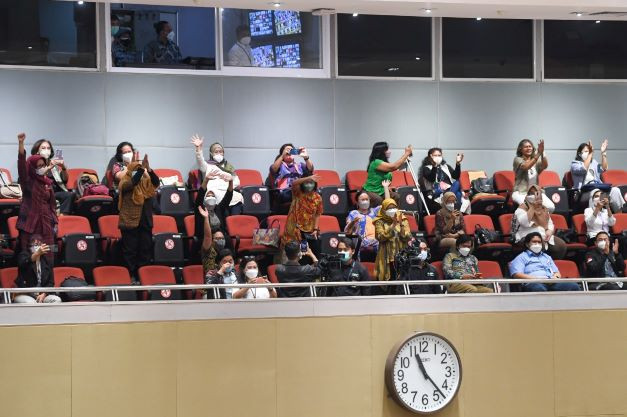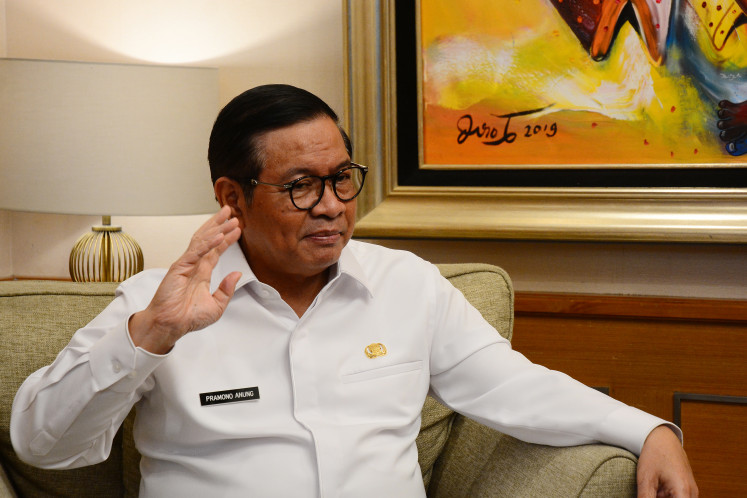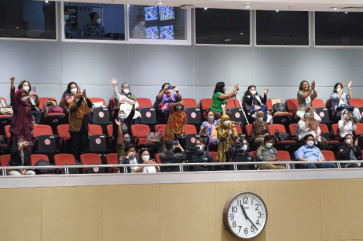Popular Reads
Top Results
Can't find what you're looking for?
View all search resultsPopular Reads
Top Results
Can't find what you're looking for?
View all search resultsIndonesia can be a role model for SDGs localization
Localizing the SDGs is really about providing people with the tools to participate in the process of decision-making.
Change text size
Gift Premium Articles
to Anyone
Amid the ongoing crises afflicting the world, it might be preposterous to talk about the importance of Agenda 2030 and the Sustainable Development Goals (SDGs).
Yet as United Nations Secretary-General António Guterres has made clear on numerous occasions, Agenda 2030 and its SDGs offer the best chance of achieving an equitable, just and sustainable future for humanity. Otherwise, the risks are really high: the next generations will face ensuing possibilities of annihilation and self-destruction.
Among all the SDGs, particular attention should be given to SDG 16 – peace, justice and strong institutions. This goal is paramount not only because it focuses on peace but also because of its emphasis on participatory governance.
In one way, this goal itself the result of difficult wrangling among UN member states, is transformative because, despite a lot of resistance, it succeeded in highlighting the importance of the rule of law. Moreover, Southeast Asia should be proud of the fact that Timor-Leste, which will sooner or later join ASEAN, played a key role in pushing for the inclusion of SDG 16.
As recalled in the book Transforming Multilateral Diplomacy: The Inside Story of the SDGs coauthored by Ambassador Macharia Kamau of Kenya, Pamela Chasek and David O’Connor, Timor-Leste pushed hard and did not relent.
No matter the pressure by some of the bigger nations afraid of being taken to task for their human rights and rule of law practices, at the end of the day, Agenda 2030 also included SDG 16. Among the different targets within this goal, one of them, target 16.7, is uniquely strategic as it focuses on “ensuring responsive, inclusive, participatory and representative decision-making at all levels”.
Unfortunately, this target rarely gets the attention it deserves. In fact, it is exceptionally well positioned not only to help achieve the whole SDGs framework but also to ensure the future of governance – a different type of governance that is bottom-up and, by purpose, truly inclusive to accommodate the views and perspectives of the citizenry.


















